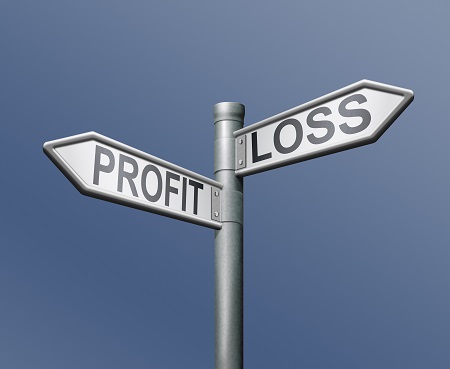Two Types of Customers Who Will Visit Your Shop Less – And Two that Won’t
May 29, 2020
Six months ago, experts were debating when a recession would hit. Now, they’re trying to predict how bad the Coronavirus-induced recession is going to be, and how long it’s going to last. Most experts think it’s extremely bad, and it will probably last through 2021.
On the whole, recessions are bad for business. But there have always been opportunities during recessions. Some products and business models just do better when most everyone else is doing worse.

With that in mind, here are two types of auto repair shop customers who will struggle during this recession, and two who won’t.
Recession-Risky: The Maintainers
The people who spend the least on vehicles over their lifetimes are also among the most profitable for repair shops. They are the Maintainers – people who come into the shop regularly to make sure their vehicle isn’t slowly falling apart in some way that will cost thousands of dollars to fix. They may not follow the maintenance guidelines in their owner’s manual, but they do follow your advice to keep their vehicle running for as long as they can.
Or at least they do for as long as they have the money to do it. When smart people are short of money, they pull out their bills and start asking the question “what happens if I stop paying this one?” The mortgage, power and water bills get kept pretty quickly. Other quality-of-life expenses make the cut, too. But what happens to a well-maintained vehicle if it skips one service? Probably nothing – so it’s likely to get cut.
Unfortunately, one missed appointment can quickly turn in to three or four.
Recession-Risky: The Business Drivers
Six months ago, the sharing economy had made business vehicles one of the fastest growing category of customers. While Uber and Lyft drivers didn’t make a lot of money, they were reliable customers for many shops. For these drivers, a vehicle was a business expense, and they understood that maintaining a vehicle was cheaper than replacing it. They also knew that a day off the road was a day without pay.
While food delivery remains strong, the ride-sharing business model has been eviscerated by Coronavirus. While it’s true that some people who relied on ride-sharing exclusively will be forced to buy a car (good news for shops) most of these lost miles will simply be trips that aren’t taken. People won’t drive downtown if they don’t feel comfortable taking an Uber – they just won’t go at all. And those billions of lost miles will hurt shops and manufacturers alike. And it’s not just Uber and Lyft – the rental market has declined so quickly that Hertz lost 75% of its value within a month of the lockdown and went bankrupt within three months.
Recession-Resistant: The New Car Crowd
One group of people you rarely see in an independent shop are members of the New Car Crowd. These people love having the latest tech and the newest design, and they’re willing to pay for it. The most obsessed members of the New Car Crowd lease their vehicles, Others buy their vehicle, but trade it in for a new one right after their monthly payment is gone. Dealerships understand the amount of money they can make on these customers, and they put extra effort into getting them to come to the dealership for repairs as often as possible, hoping they’ll drive off with a shiny new vehicle instead of their old one.
Unfortunately for dealers, the new car market has collapsed. Sales are down more than 50% year-over-year. And as salaries and credit ratings go down, some members of the New Car Crowd make the responsible decisions to hold on to their cars for a bit longer than they used to. After their extended maintenance contract expires and dealership repairs start costing an arm and a leg, they’re more likely than ever to give your shop a call, especially if you have a stellar reputation.
Even if members of the New Car Crowd do decide to trade-in their vehicle, the lightly used vehicle market is currently lopsided in the buyer’s favor, making it an attractive money-saving option. And if most or all of Hertz’s 500,000 vehicle fleet floods the used car market, buyers may be able to buy a used vehicle at some of the best prices ever.
Recession-Resistant – The End-of-the-Road Customers
One customer that shops can always rely on is the End-of-the-Road crowd. These are the opposite of the maintenance crowd – they ignore their vehicle until it stops running for some reason, and then end up in your shop to figure out what the damage is.
It’s true that many people who ignore maintenance don’t have the money to pay for it. These customers aren’t going to be in any better shape during a recession. But not having a vehicle means not having a job for many people – and if there’s a way to get back on the road, they’ll prioritize it over almost anything. While you may need to work with these customers on price, these vehicles are likely to keep showing up at your shop, likely on the back of a tow truck.
Not all End-of-the-Road Customers are in dire financial straits, however. Some people just really hate taking their vehicles to the shop and avoid it at all costs. Others always have something “more important” going on until their car strands them on the side of the road. Many of these customers will be able to pay a reasonable price – and they may not really care to know all of the details about what you have to do to get the car back on the road.
To learn how Repair Shop Websites can help your business earn more business with a strong web presence, call us at 855-394-6397 or email us at Team_RSW@RepairShopWebsites.com.

